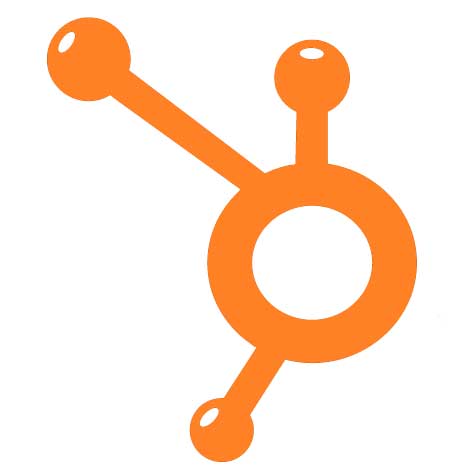All TopicsSocial Mediainbound marketingcontent marketingMarketing Principlesinbound marketing agencyContent Marketing StrategyMarketing PlanPetaluma CAMarketing strategySEOcontent creationBusinessFacebookBlogginglocal inbound marketinglocal SEOwebsite trafficlocal internet marketingBusiness Blogginginbound marketing strategyaffordable internet marketingsocial media marketingcontent distributionbusiness blogSearch Engine OptimizationBusiness OwnerBroadVision Marketing in Petaluma CAinfographicInbound marketing agency in CAblogging strategymarketingBroadVision MarketingLinkedInAdvertising and MarketingBrandingCTATwitterLeadershipUsing Different MediaLanding pagesSEO strategyblogdistribution channelssocial media strategyemail marketingBroadVision Marketing Petaluma CAInternet Marketing StrategyOnline Communitiesonline marketing strategyEmail listscall-to-actionGoogle Searchvideodigital marketinginbound social media marketinginternet marketingshort form videotrust buildingMarketing in Petaluma CAinbound marketing tipsmobile searchMarketing and AdvertisingemailCorporate blogemail marketing strategyinfographicslead generationmarketing mixvisual contentwebsiteAdvertisingGoogleJaco GrobbelaarLanding page optimizationVideo Marketingaffordable SEObusiness blogsinternet marketing tipslanding pageJaco Grobbelaar BroadVision Marketing Petaluma CAblog post ideascontent developmentinternet marketing tiplead magnetMarketing ObjectivesSEO companySMART goalsSmall business marketing strategyTeam leaderYouTubeaffordable local seoblog postinglocal inbound marketing agencySEO servicesbest seo practicesebookslocal seo marketingoutbound marketingtarget marketwebsite designInbound marketing agenciesMarketing SyntaxPPCbacklinkscomplimentary Marketing Strategy Sessiondigital marketing strategylead generation strategymarketing trendson page SEOGoal settingGuest BloggingMarketing strategy.business bloggingSlideShareVideosWeb contentYouTube Videosaffordable internet marketing tipsattract customersdigital marketing objectiveshomepageinbound content marketinginbound marketing localinbound marketing strategieskeyword researchmarketing strategiesmobile marketingnewsletteroff page seooutsourcingreviewsBest LinkedIn TipsCRMCompanyCustomerOptimizationSERPSmall businessSocial networkTarget AudienceUniform Resource LocatorWeb search enginebest business blogsbusiness blog post ideasgraphicsinbound marketing coachinternetlead nurturinglinkedin for businesslocal seo basicsnative videoorganic keyword searchpersonasAIKeywordsMarketing MessageOpt in e-mailPinterestTeamworkTelevision advertisementWordPressYelpanalyticsblog headlinesbrand awarenessinbound marketing campaign creationlist buildinglocal inbound marketing tipmarketing coachmarketing site trafficpay-per-clickrepurposing contentsales funnelsample marketing plansmartphonesocial media optimizationtarget marketingwhite papersBrandBranding Case StudyCommunicationConflict resolutionConversion rateGoogle AnalyticsHubspotLinkedIn profileMedia Marketing StrategyNetworkingProfessional Services ProviderQR CodeSan Francisco Bay AreaTeamTeam conflictUnited StatesUser-generated contentagencyarticle writingauthority contentblog post tipsclientscontentcontent curationconversiondemand generationdriving traffichow to get more clientsinboundinbound lead generationinbound marketing Petalumainbound marketing tipincrease website trafficinformationkeywordleadlocal inbound marketing strategylocal seo companylocal seo servicemarketing ball gamemarketing budgetmarketing helpmarketing predictionsmedia sharingmobile-friendly designpaid mediapowerpointpress releasepromotionreferralssearch enging marketingsegmentationsocial media networksthe 7 Psthought leadershipuser experienceweb marketing tipsword of mouthAIDAAdvertising mailBacklinkChamber of CommerceCohort marketingControversyCustomer ReviewsDecision makingFacebook advertisingFowlesGoogle MapsHeadlineLikesLinkedIn Company PageManagement
What Are the Characteristics of Well-functioning Teams?
[caption id="" align="alignright" width="150" caption="Team members at work"] [/caption] The purpose for teams is to com …
That Leader Knows When Conflict is Destructive or Constructive
[caption id="attachment_2508" align="alignleft" width="200" caption="Constructive Conflict Resolution"] [/caption] Just …
Conflict HappensHow That Leader Spots It
[caption id="attachment_2499" align="alignleft" width="200" caption="Team Member Disrupting a Meeting"] [/caption] Every …
.png?width=302&height=75&name=BVM%20Logo%20-%20transparent%20(1).png)

